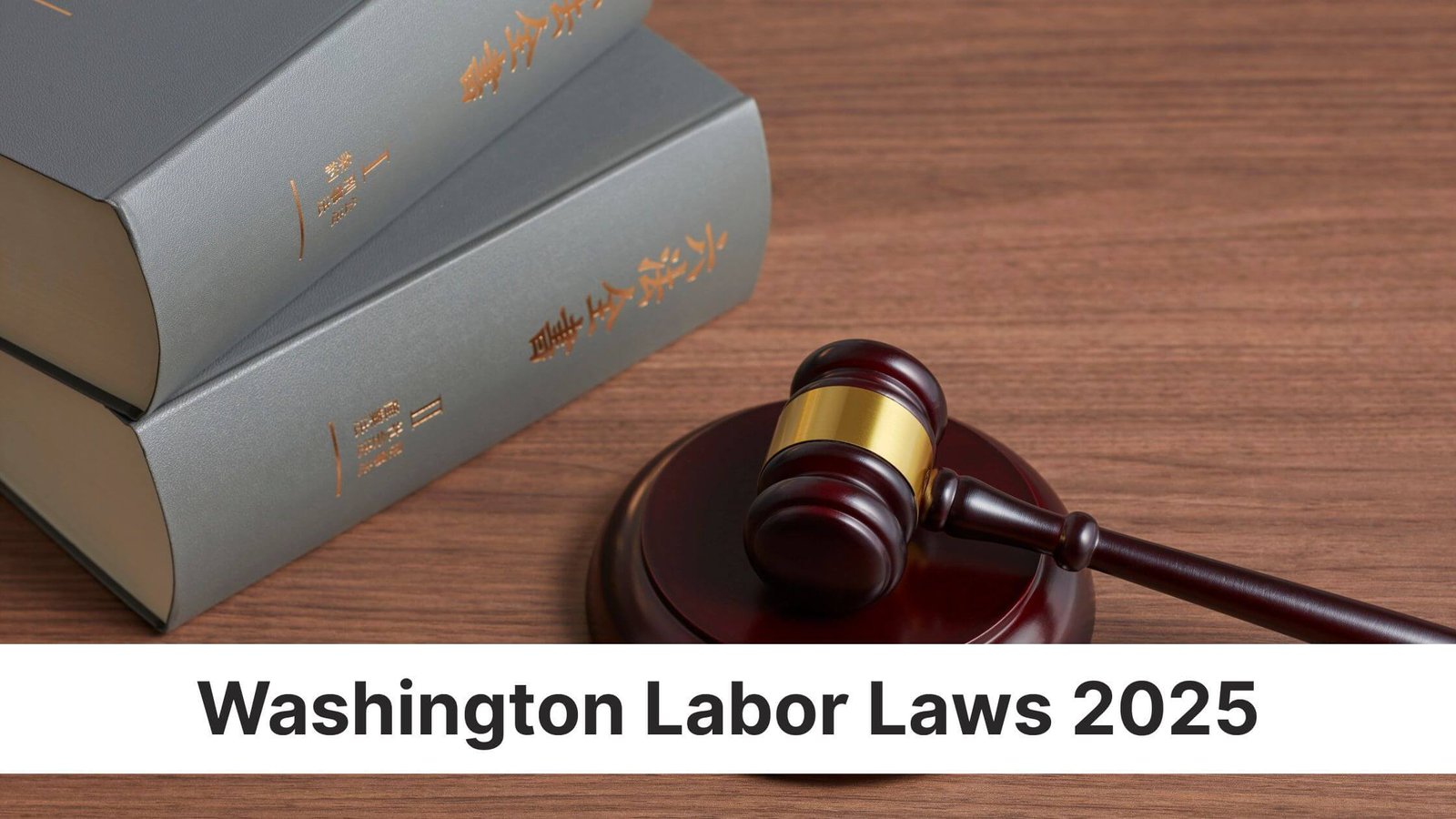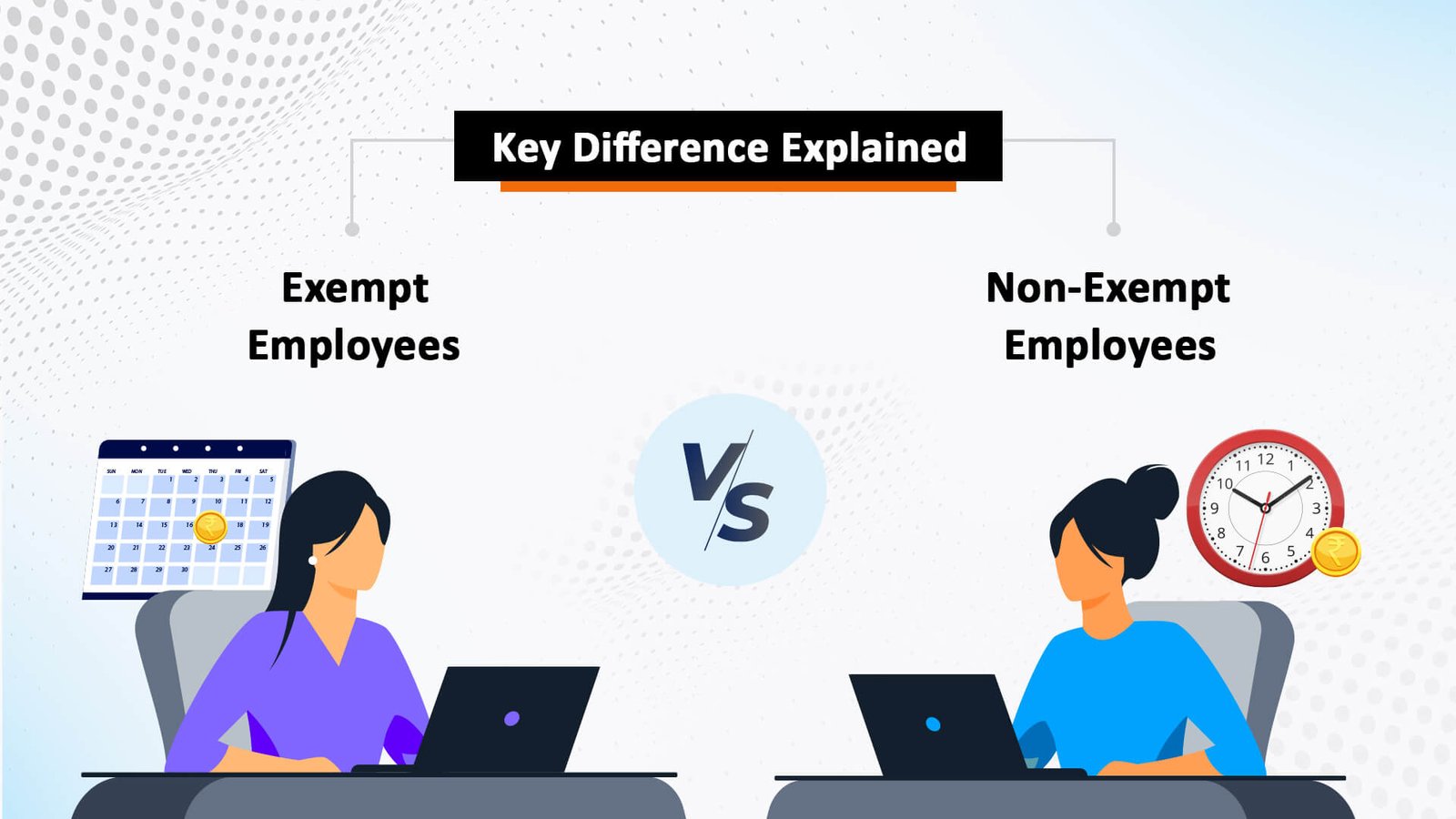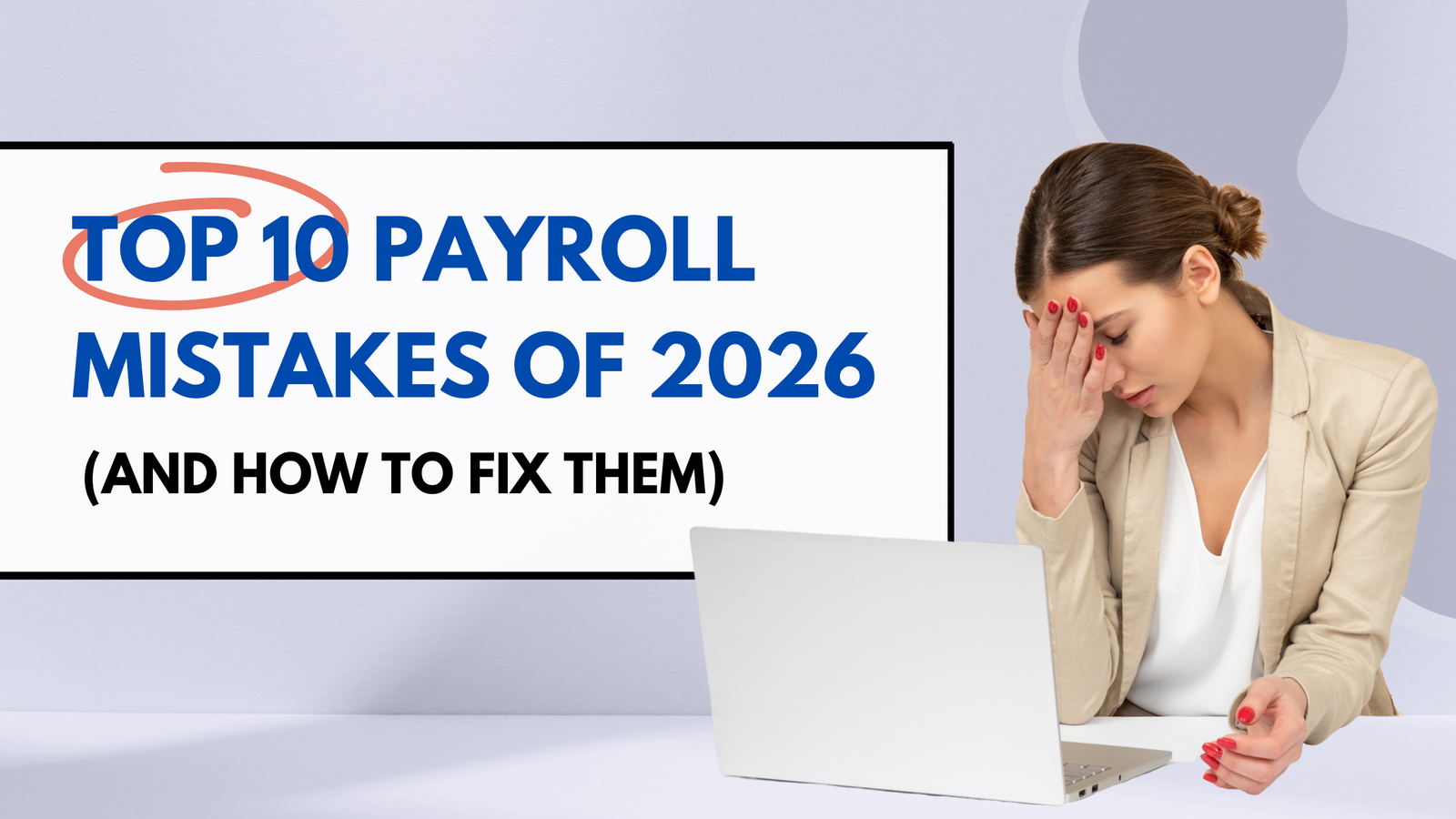The State of Washington Labor Laws are intended to protect employees’ rights. Labor Laws in Washington, D.C. should be fair and responsible for businesses and employees. Washington is the worker-friendly state in the USA, and it has strong Washington labor laws.
These Washington labor laws include rules regarding overtime, minimum wage, health and safety, leave policies, and many more. Studies typically find that it has strong Washington labor laws for breaks and paid leave policies, etc.
No matter where you’re working- in Seattle, in Spokane, or any other city in the state, staying current on the rules is vital to compliance.
Standard Working Hours And Wages In Washington
Washington employers are some of the very few state that has such strong wage laws. In addition to abiding by the State of Washington Labor Laws 2025, businesses must also comply with Washington State Minor Labor Laws, which mandate that job postings contain the salary range for the position.
Minimum Wages
On January 1, 2025, Washington state’s hourly minimum wage will be $16.66—the highest state minimum wage in the country after Washington, D.C. This wage applies to most employees, with some exceptions and special instances:
- Exempt workers: Executive, administrative, or professional employees.
- Subminimum wage (if authorized by L&I): Apprentices, student workers, student learners, on-the-job learners, and workers with a disability.
- Other exemptions: Volunteers and those working overnight who are legally mandated to either live or sleep at their place of employment.
Washington State L&I increases the minimum wage in the state each year on September 30 if there is a change in the Consumer Price Index (CPI). The new rate becomes effective on the following January 1, 2025.
Tipped Minimum Wages
Unlike in many other states, employers in Washington may not make up the difference in wages between what they pay and the tipped minimum wage. Employers are also obligated to see that employees receive all tips they collect. Tips belong to the employee, not the employer.
Washington does allow tip pooling — but it’s highly restrictive. A tip pool may only include those employees who receive tip credit or are participants in the tip pool under the Washington Minimum Wage Act. Superiors, bosses, or owners cannot partake of employee tips.
Overtime Laws
Employees in Washington have a standard workweek of 40 hours, though they often work beyond it for deadlines or understaffing issues. When this is so, employers must pay at least 1.5 times the employee’s regular hourly rate for all hours worked over 40 in a single workweek.
Notably, Washington labor laws do not even mandate double-time pay (unless for certain types of public works) like some states.
Ensuring that workers are clocked in and paid correctly is a win-win for minimizing risk and cultivating employee trust because employees are likely to make overtime even if the companies never ask them to.
Meal Breaks And Rest Periods In Washington
As per the Washington labor laws breaks there are specific guidelines for determining when meal periods are paid and unpaid.
Paid Meal Breaks
Employers must compensate employees if, during their meal break,
- The worker is required to remain on duty.
- Employer requires the employee to remain at the worksite, while off duty, in an on-call status.
- Detracts from the meal hour (the employee is called back into work).
If an employee’s meal break is interrupted, they still must receive a full 30-minute meal period.
Unpaid Meal Periods
Employers couldn’t be required to pay for meal breaks if the employee is relieved from doing all work during the full break.
Rest Breaks
Alongside meal breaks, Washington labor laws for breaks mandate that employers offer paid rest breaks. Workers are entitled to at least a 10-minute paid rest period as per the 4-hour minimum pay in Washington State.
This rest period must not be allowed to commence after the completion of 3 consecutive hours of work.
Employment Severance Pay And Contracts
Washington is an at-will employment state. This means that if an employee commits any contract violation or breach as per the agreement, then an employer has the right to fire an employee at any time and for any reason; vice versa, an employee has the right to quit at any time, with or without notice.
Washington also has special laws to protect workers’ rights on the job:
- Wage Discussions: An employer cannot retard employees for discussing or disclosing their wages as a precondition of employment.
- Non-Solicitation Contracts: The contract is enforced concerning existing customers of a company, not the future employees.
- Non-Compete Agreements: In order for a non-compete agreement to be valid in Washington, it must satisfy some very specific criteria.
For wages earned on or after January 1, 2025, the thresholds should be $123,394.17 for employees and $308,485.43 for independent contractors.
Severance Pay
Severance compensation is not a requirement in Washington. But employers can offer it as part of an employment contract, termination agreement, or collective bargaining agreement.
Work Safety And Health
An employee who believes that he or she has been discriminated against may file a complaint with the Washington State Human Rights Commission (WSHRC) or the Equal Employment Opportunity Commission (EEOC). A complaint filed with one agency is automatically registered with the other. But complaints must be presented to the WSHRC if:
The claim alleges a protected characteristic that is not a protected characteristic under Washington state law.
Equal Pay and Opportunities Act (EPOA)
Washington also has an equal pay law called the Equal Pay and Opportunities Act (EPOA). Employers can’t pay men and women who do the same work substantially different wages. Starting on July 1, 2025, the law will further prohibit pay discrimination based on any protected category, not only gender.
Child Labor Laws In Washington
The state has stringent Washington state labor laws for minors restricting child labor. In most cases, children have to be at least 14 years old to legally work, but there are some exceptions.
- 12- and 13-year-olds are permitted to do some types of agricultural work.
- Kids can also find work refereeing soccer.
- Children of any age may labor on the family farm.
- Children under 14 may work in rare situations if either:
-
- A county court authorizes it.
- Proof of the child’s age is maintained on file
- The employer secures the necessary consent form and a work permit for minors.
Meal And Rest Breaks For Minors
| Age | Meal Breaks | Rest Breaks | Remark |
| Under 16 | 30-minute meal break after 4 consecutive working hours | 10-minute rest break after every 2 hours | A minor cannot work more than 2 hours without either a meal or a rest break. |
| 16–17 | 30-minute meal break after 5 consecutive working hours | 10-minute rest break after 3 hours | Same rules as adults, but with stricter enforcement. |
Taxes In Washington
Washington does not have an individual income tax but levies a 7% tax on capital gains income. The state does not impose a corporate income tax but applies a gross receipts tax instead.
Washington has a 6.5% state sales tax rate with an average combined state and local rate of 9.38%. The effective property tax rate is 0.76% on owner-occupied housing.
Don’t Be Tired of Paystub Errors- Get Ready-Made From Free Paystub Generator
There are chances to make mistakes, such as missed deductions, underpaid net pay, or missing employee data on paystubs. These errors can get you in trouble. They can cause problems for employees trying to verify their income when applying for a loan or renting an apartment. For employers, they can create confusing compliance nightmares, battles, and a crisis of confidence among the ranks. Manual paystub generation will only add the possibility of such errors.
The most convenient way to solve such issues would be to rely on a free paystub generator. Rather than spending a few hours making the earnings statement and deductions, you may fill in the details and instantly download the paystub.
With paystub generators, both businesses and employees will get the advantages of more accurate information, increased transparency, and peace of mind.
Curious Minds Also Ask
What are the labor laws in Washington state?
Minimum wage regulations, overtime pay, rules for breaks, and rights in the workplace are all addressed under the State of Washington labor laws, ensuring fair and compliant treatment of employers and employees alike.
How many breaks do you get in an 8-hour day in Washington state?
In an 8-hour shift, employees are allotted a 30-minute unpaid meal break and 2 paid rest breaks of 10 minutes for every 4 hours of time worked.
Can you be fired without warning in Washington state?
Yes, Washington is an at-will employment state, which means an employer can terminate an employee at any time and for any legal reason, unless the termination is discriminatory or in violation of an employment contract or public policy.
What is the shortest shift you can legally work in Washington state?
There are no minimum shift rules in Washington, unless an employee reports to work, then the employee must be paid for half their scheduled shift, but no less than 2 hours.
What is the unfair labor practice in Washington state?
Interfering with your right to join a union, discriminating against you in any way for engaging in protected activity in Washington, constitutes unfair labor practices.
How many hours can I work in a day in Washington state?
In the state of Washington, employees may generally work up to 8 hours a day, and if it’s more than that, then they must be paid overtime; however, there is no strict maximum daily limit other than for safety or certain industry rules.
What qualifies as wrongful termination in Washington state?
In Washington, wrongful termination encompasses termination based on illegal discrimination, considering a legal right, fulfilling a legal duty, or under a valid contract.
Can I sue my employer in Washington state?
Yes, you can sue your employer in Washington for wrongdoing, including wrongful termination, discrimination, wage theft, or retaliation, depending on the situation.
Can I choose not to take a lunch break in Washington state?
No, employees can not skip their lunch break in Washington. Under labor laws in Washington State, employers must give employees the meal and rest periods that are required.
How far in advance must a work schedule be posted in Washington state?
Washington labor Laws require workers to be notified 14 days in advance of their schedules.
What is the 7-minute rule in Washington state?
The 7-minute rule in Washington refers to federal payroll rounding rules. This is applied under the FLSA, where time worked within 7 minutes is rounded down, and 8 minutes or more is rounded up.
Is PTO a requirement in Washington state?
Washington law does mandate paid sick leave, but not PTO (which is not a mandate in most states unless the employer chooses).
How many bereavement days are you entitled to in Washington state?
Bereavement leave is not provided as per the Washington labor laws, but some employers offer it voluntarily through a company policy.
Is holiday pay mandatory in Washington state?
There is no requirement that employers must provide holiday pay under Washington labor law, unless there is an employer policy or contract that requires such compensation.
What happens to unused sick time in Washington state?
Unused sick time in Washington must be carried over to the next year, and employers must permit at least 40 hours of unused paid sick leave to roll over each year.
FAQ's
What is the minimum wage in Washington for 2025?
+
The minimum wage in Washington for 2025 is $16.28 per hour, one of the highest in the nation. Some cities like Seattle may have higher local rates.
Do Washington workers get paid sick leave in 2025?
+
Yes. Washington requires employers to provide at least 1 hour of paid sick leave for every 40 hours worked, with local ordinances possibly offering more.
What are the overtime laws in Washington for 2025?
+
Non-exempt employees must receive 1.5 times their regular pay for hours worked beyond 40 in a week. Some salaried employees may be exempt based on duties and salary thresholds.
Are employers in Washington required to provide meal and rest breaks?
+
Yes. Employees must receive a 30-minute meal break for shifts over 5 hours and a 10-minute paid rest break for every 4 hours worked.





